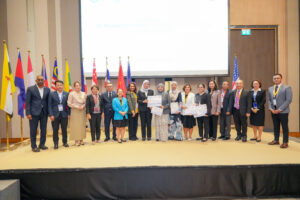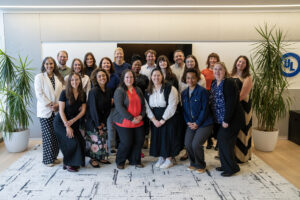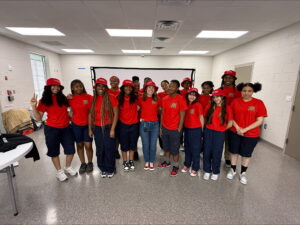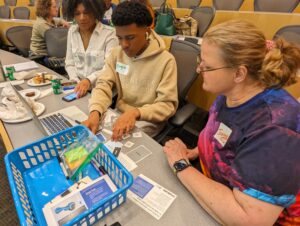Call for Applications: 2025 UL Research Institutes-ASEAN-US Science Prize for Women
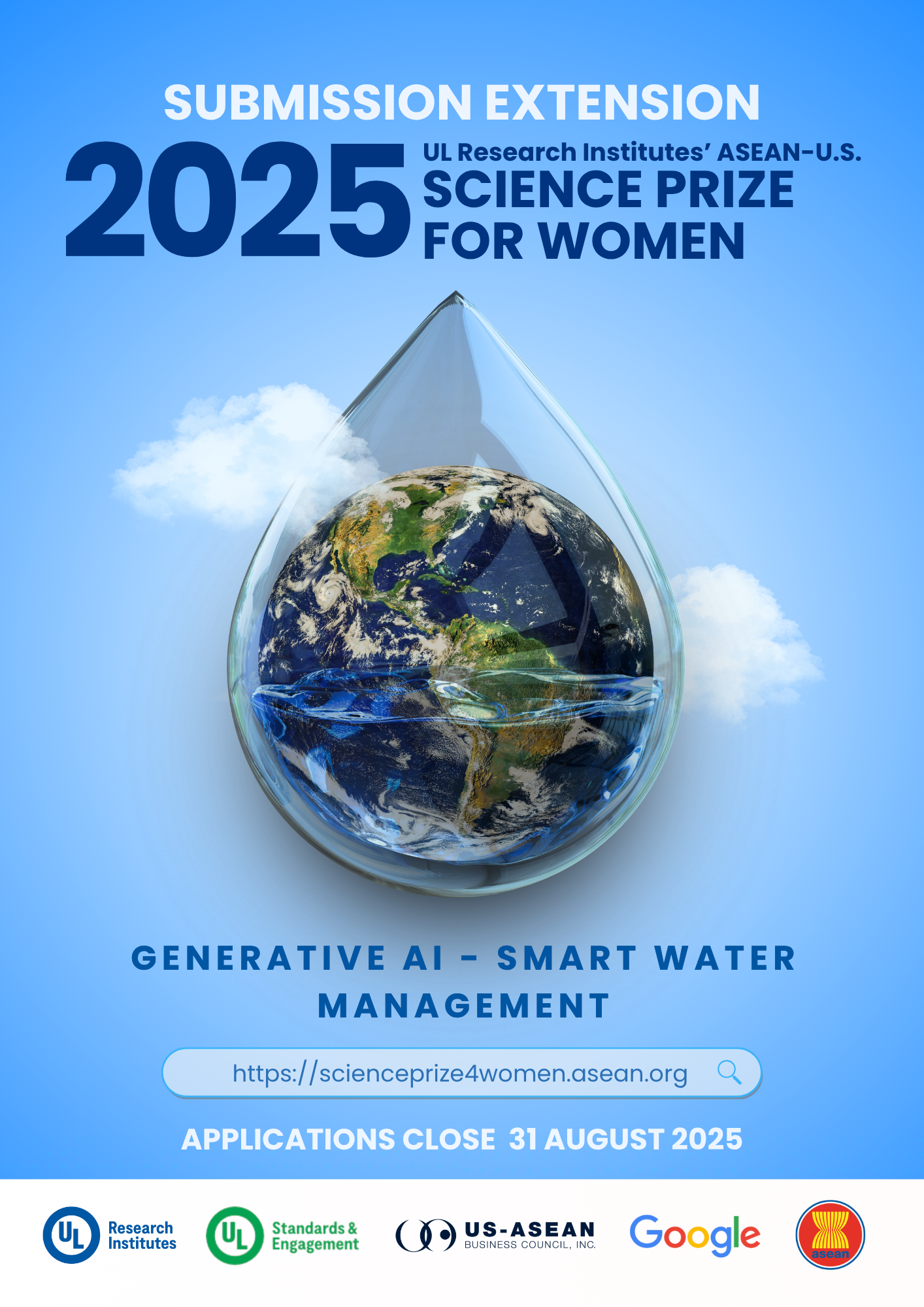
JAKARTA, Indonesia — The 2025 UL Research Institutes-ASEAN-U.S. Science Prize for Women is now open for applications from mid-career and senior women scientists in Southeast Asia whose work demonstrates exceptional leadership and ingenuity.
Created in 2014 to recognize and strengthen women’s significant scientific contributions to the region, this year’s contest is a partnership between UL Research Institutes, UL Standards & Engagement, the US-ASEAN Business Council, and the Association of Southeast Asian Nations, with the support of Google. Winners of the prestigious prize in both the senior scientist and mid-career scientist categories will each receive $12,500, while runners-up in each category will receive $5,000.
2025 theme: ‘Generative AI for Smart Water Management’
This year’s theme, “Generative AI for Smart Water Management,” emphasizes generative artificial intelligence’s potentially transformative role in addressing pressing water challenges. The competition will showcase women scientists conducting groundbreaking research that leverages generative AI to deliver smarter, more sustainable, and resilient water management systems.
“The health of our environment is inseparable from the safety of our communities,” said ULRI Chief Research Officer Christopher J. Cramer, Ph.D. “This year’s science prize spotlights innovative research in generative AI for smart water management — empowering us to better predict and mitigate environmental risks, preserve vital ecosystems, protect water quality, and foster a more resilient planet for all.”
Applications that feature research crossing sectors like urban development, agriculture, environmental sustainability, and disaster risk reduction are encouraged.
Call for applications
We invite women scientists from the 10 ASEAN member states who hold doctoral degrees relevant to this year’s theme to apply. This is a unique opportunity for ASEAN women researchers to promote their impactful research and innovations in using generative AI for smart water management.
The application window will close Aug. 31, 2025. For more information, please visit the UL Research Institutes-ASEAN-U.S Science Prize for Women website or email scienceprize4women@gmail.com.
Competition categories and prizes
Eligible candidates compete in two categories based on career stages:
- Mid-Career Scientist category, for applicants 45 years old and under
- Senior Scientist category, for applicants 46 years old and over
Finalists will be invited to a final judging session and the official award ceremony, to be held during the ASEAN Committee on Science, Technology and Innovation meetings in Bangkok, Thailand, in October 2025.
Dr. Boediastoeti Ontowirjo, chair of the ASEAN COSTI, emphasized the value of this science prize initiative in strengthening regional resilience.
“This year’s theme, “Generative AI for Smart Water Management,” could not be more timely,” Ontowirjo said. “Across ASEAN, the effects of climate change and water scarcity are growing concerns. The work of women scientists in leveraging cutting-edge technologies like AI is essential to shaping more inclusive, sustainable, and data-driven solutions. COSTI is proud to continue this initiative of championing scientific excellence and gender equity in ASEAN.”
USABC Interim President and CEO Brian McFeeters, ambassador, retired, said: “We are proud to support the 2025 Science Prize for Women, an initiative pivotal for recognizing the excellence of women researchers in STEM across ASEAN. We are incredibly honored to highlight the impact of ASEAN women researchers in solving regional challenges through cutting-edge research in environmental governance, artificial intelligence, and an innovation-led ASEAN. The council would also like to thank Google for their valuable support in this year’s prize.” Google’s support for this year’s prize further highlights the significance of innovation in tackling ASEAN’s most pressing challenges. Google’s commitment to the inclusive development of AI particularly aligns with the prize’s focus on prompting science-based solutions and empowering women researchers to lead in the region’s digital and environmental transformation.
PUBLISHED


